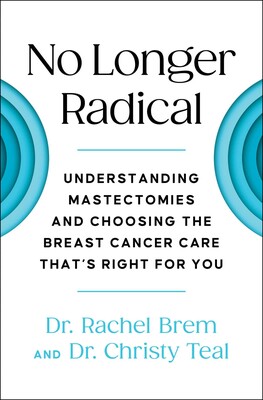WASHINGTON (May 10, 2023)—New draft recommendations from the U.S. Preventive Services Task Force state that women who are between ages 40 and 74 should have screening mammograms every two years. This is a change from their current guidelines, which formally advise starting biennial screening by age 50. The Task Force is an independent board of doctors and other experts appointed by the Department of Health and Human Services to evaluate care aimed at prevention or early detection. Breast cancer is the most common cancer among women in the United States, aside from skin cancers, and the second-leading cause of cancer-related death in women.
The George Washington University has multiple experts available to speak on topics such as breast cancer and breast cancer screening, prevention, and treatment. To interview an expert, please contact Rachel Larris, rlarris gwu [dot] edu.
gwu [dot] edu.
Rachel Brem, MD, director of breast imaging and intervention at the GW Cancer Center and professor of radiology at the GW School of Medicine & Health Sciences, is available to speak on early detection, breast diagnosis, breast imaging, and trends in breast cancer care and treatment. She is the co-author of the upcoming book “No Longer Radical Understanding Mastectomies and Choosing the Breast Cancer Care That's Right For You” by Simon and Schuster, a guide to understanding breast cancer detection, prevention, and treatment options, from a breast radiologist and a breast surgeon—who have also made the personal decisions to have mastectomies.
Christine Teal, MD, director of the Comprehensive Breast Cancer Program at the GW Cancer Center, chief of breast surgery at GW Hospital, and associate professor of surgery at the GW School of Medicine & Health Sciences, is available to speak on breast surgery and trends in breast cancer care and treatment.
Amita N. Vyas is an associate professor at the GW School of Public Health and Director for the MPH Maternal and Child Health program and the Center of Excellence in Maternal and Child Health. She is currently leading a study in Washington D.C. to examine health inequities and maternal morbidity.


